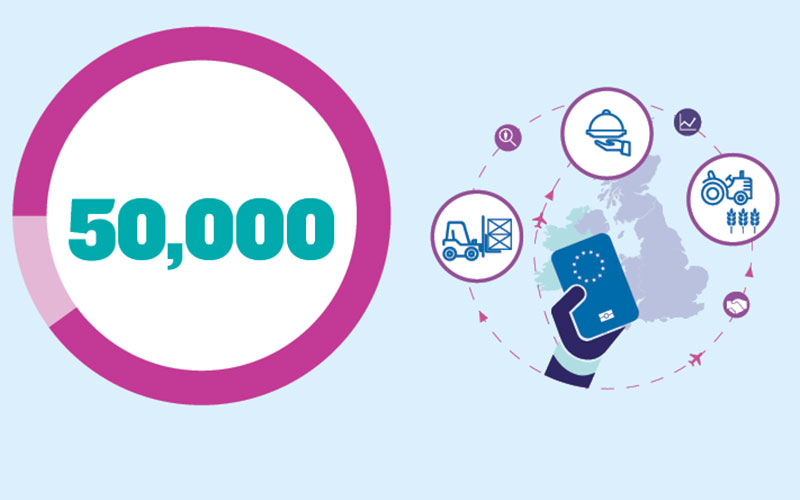The Intelligence

With REC senior researcher, Thalia Ioannidou
On 28 September 2017, the REC published the third report in its Brexit research series: ‘Ready, willing and able? Can the UK labour force meet demand after Brexit?’. This builds on our previous research into post-Brexit immigration and provides further insights into sectors that employ a high proportion of EU workers in low-skill roles.
We spoke to recruiters, employers, UK workers and EU workers from industries such as warehousing, hospitality and food production to get a fuller picture of how these sectors are currently operating and how a reduction in the availability of EU labour would affect them. We also conducted an online research forum with current UK jobseekers to get their perspective on low-skill roles in these sectors.
Unsurprisingly, better pay and job opportunities in the UK compared to their home countries were key factors in attracting and retaining EU workers in low-skill roles in the UK, though a familiar language and a welcoming national and working culture were also valued. However, post-referendum uncertainty, hostility from some British people and the falling value of the pound have made the UK a less attractive option, particularly with the economies of EU8 and EU2 countries in Eastern Europe improving year-on-year. Latest ONS figures show that net EU migration is down over 50,000 compared to the previous year, with most of this fall being driven by fewer EU8 migrants immigrating and significantly greater numbers emigrating.
Recruiters and employers in these sectors were all too aware of these trends and were facing challenges filling low-skill roles before the referendum was even announced. There was scepticism regarding some commentators’ suggestions that UK workers or automation could fill any post-Brexit labour gap. Many had already had disappointing results with UK worker recruitment drives and there were often specific challenges to further automation in their business or sector, especially for SMEs who couldn’t afford the substantial upfront costs to fully automate.
Latest ONS figures show that net EU migration is down over 50,000 compared to the previous year with most of this fall being driven by fewer EU8 migrants immigrating and significantly greater numbers emigrating.
The report sets out our recommendations for government to avoid a post-Brexit labour shortage, as well as recommendations for recruiters and employers on how to attract and retain workers in low-skill roles in an increasingly tight section of the labour market.
UK nationals currently employed in low-skill roles in these sectors also recognised the reluctance of many other British people to take on these jobs and the importance of EU labour to their workplaces. The findings from our online forum with UK jobseekers mirrored the reasons UK workers thought other Brits weren’t taking on these roles.
Whilst low pay was an obstacle for some, others were more concerned that they wouldn’t be able to meet the physical demands of many of these roles or felt they were overqualified to do elementary work.
The report sets out our recommendations for government to avoid a post-Brexit labour shortage, as well as recommendations for recruiters and employers on how to attract and retain workers in low-skill roles in an increasingly tight section of the labour market.
To access the full report and our other Brexit research reports, visit www.rec.uk.com/brexit
